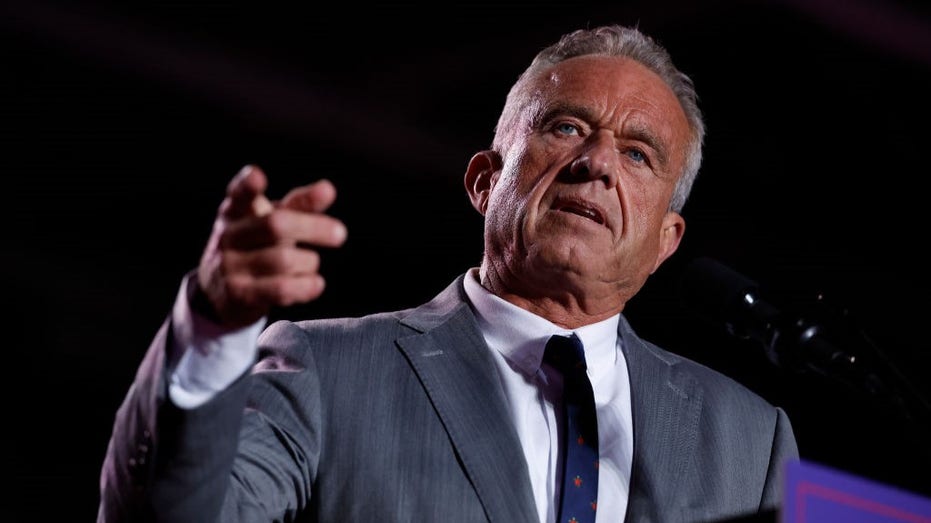- by foxnews
- 08 Apr 2025
Power move: Stacey Abrams’ next act is the electrification of the US
Power move: Stacey Abrams’ next act is the electrification of the US
- by theguardian
- 31 Mar 2023
- in politics

Stacey Abrams has been hailed as a masterly community organizer, after she helped turn out the voters that secured two Senate seats for Democrats in once solidly red Georgia. She has also run twice - unsuccessfully - for state governor. For her next move, she's not focusing on electoral power so much as power itself.
Recently she left the world of campaign politics and took a job as senior counsel for the non-profit Rewiring America. Her role will focus on helping thousands of people across America wean their homes and businesses off fossil fuels and on to electricity, at a moment when scientists have given a "final warning" about the need to curb greenhouse gas emissions and prevent global catastrophe.
"We are at an inflection point where we can choose to electrify," she said in an interview. "We don't have to do it everywhere, all at once. If you want to see what the future looks like, we start building it here and now."
The impetus for her role comes from significant moves taken by the Biden administration. When he signed the Inflation Reduction Act (IRA) last year, President Joe Biden hailed it as "the biggest step forward on climate ever". It includes a sprawling array of tax credits, rebates and other incentives to help people electrify their lives.
"The government has basically filled a bank account for you with thousands of dollars that will help you go electric," Abrams said.
Her mission is to help people access that so-called bank account.
"You can improve your indoor air quality, make cooking quick and easy, make being cool in the summer and warm in the winter, and be more affordable," Abrams said. "But we have to talk about it."
Abrams is perhaps best known for registering 800,000 voters in Georgia through her voting rights advocacy organization Fair Fight Action. She wants to use a similar playbook with electrification, and doing so could benefit many of the same people whose voices risked going unheard in elections.
Low-income communities and communities of color have long had to contend with polluting, inefficient appliances. This has an impact on public health by increasing the risk of asthma and leads to higher utility bills that take a bigger bite out of households' income. The IRA takes aim at some of those wrongs, with tax credits and rebates that can help those households swap in heat pumps, induction stoves and electric vehicles for their gas-powered counterparts.
But figuring out what incentives you qualify for and how to access them can be involved, to say the least. While Rewiring America has a calculator that lets individuals suss out what IRA benefits they can snag, Abrams will be taking that and other tools to the community level. She highlighted how houses of worship could be prime places to talk about the IRA and a potential target for outreach.
And she hopes to work with local leaders such as teachers, mayors and city council members to make the IRA a kitchen table issue. Enlisting them will, she hopes, eventually lead to neighbors talking to neighbors about how much money they saved on a new induction stove or how much more comfortable their home was during a heatwave thanks to a newly installed heat pump.
"You meet people where they are, not where you want them to be," she said. "That means understanding the lives they're living and the questions they have and who they go to to talk about their questions."
While the IRA has the potential to be transformative, it's also not enough to electrify every household in the country. The law has billions set aside for home upgrades, but more resources will be needed to achieve the Biden administration's goal of reducing US emissions up to 52% below 2005 levels by the end of the decade.
An analysis by the Rhodium Group found the law has the potential to cut emissions by up to 42%. And that it could reduce home energy bills by $717 to $1,146 by 2030.
Abrams said that, based on her experience in the arena of voting rights, the prospect of such benefits could help foster an electrification movement. "As people get more, they expect more," she said. "The most sustainable movement is when people expect more and are willing to work for more."
This isn't Abrams' first foray into climate. She was quick to point out her college senior thesis was on environmental justice and that she interned with the Environmental Protection Agency. During her tenure in the Georgia house of representatives, she also worked as minority leader to help pass a bill that included the state's biggest influx of cash for public transportation.
Ultimately, the Biden administration wants the US to reach net zero by mid-century. It might be hard to imagine that occurring - a distant future, when perhaps technologies that are only nascent today like carbon dioxide removal will be more widespread, almost every car and home will be electric, and the inequalities targeted by the IRA and Biden's executive orders will have dwindled.
That scenario can read a bit like science fiction - a genre of which Abrams is a well-known fan.
"In almost every sci-fi story, it begins with what decisions people are making long before the story takes place," she said.
- by foxnews
- descember 09, 2016
Ancient settlement reveals remains of 1,800-year-old dog, baffling experts: 'Preserved quite well'
Archaeologists have recently unearthed the remarkably well-preserved remains of a dog from ancient Rome, shedding light on the widespread practice of ritual sacrifice in antiquity.
read more





